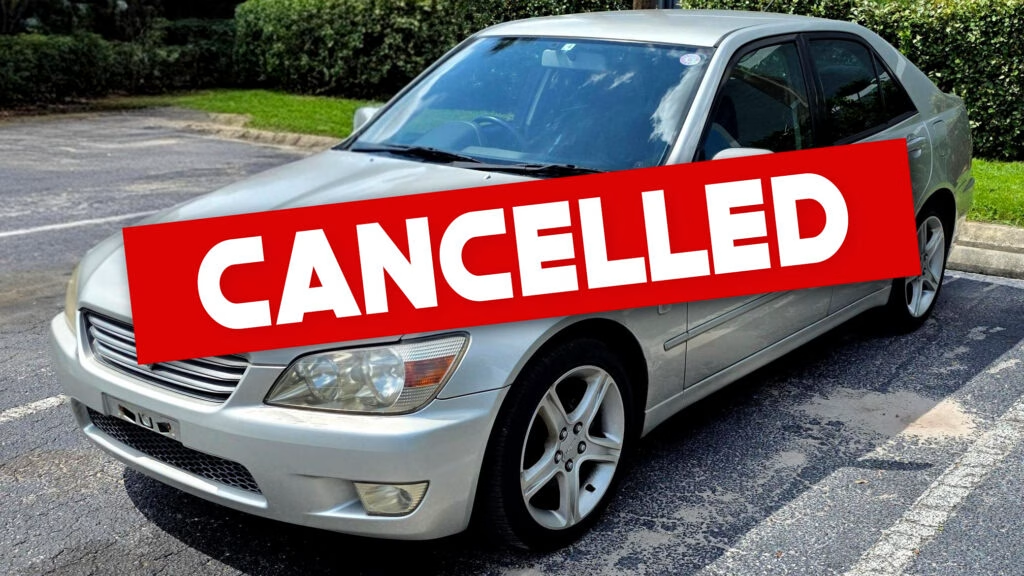Why Was the Toyota Altezza Auction Suddenly Pulled from Cars & Bids?
If you’ve been eyeing JDM imports, you might have noticed a recent stir: Cars & Bids abruptly shut down an auction for a 2001 Toyota Altezza. For many, this sedan is a dream—sleek, sporty, and a true icon from Japan. So why the sudden red flag? It all boils down to a tangle of import laws, community vigilance, and the ever-present risk of gray-market pitfalls.
What’s the Real Deal with the 25-Year Import Rule?
Here’s the crux: In the United States, federal law blocks the import and registration of most foreign-market vehicles unless they’re at least 25 years old. This isn’t just bureaucratic red tape—it’s a hard line drawn by the Imported Vehicle Safety Compliance Act. The idea is to keep cars that don’t meet US safety and emissions standards off American roads. If you try to bring in a car that’s too young, you’re likely to hit a brick wall at the DMV—or worse, face federal seizure.
That’s why the 2001 Altezza, still about eight months shy of its 25th birthday, raised eyebrows. Even if a car slips through customs and gets a state title, it doesn’t guarantee you’re in the clear. Federal law trumps state paperwork, and authorities have been known to seize and even crush vehicles that don’t comply. Ouch.
Can You Legally Import a Car Under 25 Years Old?
Technically, yes—but it’s a minefield. There are legal pathways for importing newer vehicles, but they require “federalizing” the car. That means retrofitting it with US-spec safety and emissions equipment, then jumping through a maze of regulatory hoops. According to the National Highway Traffic Safety Administration (NHTSA), only a handful of registered importers are authorized to perform these conversions, and the process can cost tens of thousands of dollars. Most enthusiasts don’t bother, and for good reason.
The seller of the Altezza claimed the car had been properly federalized, pointing to a valid US title as proof. But when pressed for documentation or details about the importer, the answers got vague. That’s a classic red flag. Titles can sometimes be obtained through legal loopholes, especially in states with laxer oversight, but that doesn’t mean the car is truly legal under federal law.
What Risks Do Buyers Face with Gray-Market Cars?
Let’s be blunt: Buying a gray-market car is a gamble. Even if you have a title in hand, you could run into trouble when you try to register the car in another state, or if federal authorities decide to take a closer look. There are documented cases where Customs and Border Protection (CBP) has seized vehicles years after importation, leaving owners with nothing but regret and a hefty financial loss.
A 2022 report from the Government Accountability Office highlighted ongoing challenges with gray-market imports, noting that “inconsistent enforcement and loopholes in state titling processes” still allow some non-compliant vehicles onto US roads. But enforcement is tightening, and the risk is real.
How Did the Community Spot the Problem?
Here’s where things get interesting. The Cars & Bids community didn’t just sit back—they dug in, asking pointed questions and flagging the auction for review. Their collective expertise and skepticism played a direct role in getting the listing pulled. Doug DeMuro, founder of Cars & Bids, even credited the community for catching the issue, emphasizing that transparency and good behavior are non-negotiable on the platform.
It’s a reminder that car enthusiasts aren’t just buyers—they’re watchdogs, too. In this case, their vigilance likely saved someone from a costly mistake.
What Should You Do Before Buying an Imported Car?
If you’re tempted by a JDM gem or any foreign-market import, do your homework. Start by checking the car’s eligibility on the NHTSA’s list of approved vehicles. Ask for detailed import paperwork, including the HS-7 Declaration and proof of compliance with EPA and DOT standards. If the seller gets cagey or refuses to provide documentation, walk away. No car is worth the risk of seizure or legal headaches.
Talk to other owners, scour forums, and consult with a registered importer if you’re unsure. And remember: just because a car has a state title doesn’t mean it’s truly legal. The devil’s in the details.
Why Does This Matter for Everyday Enthusiasts?
Stories like the Altezza auction aren’t just cautionary tales—they’re a window into the complexities of the car hobby in the US. The 25-year rule frustrates many, but it’s rooted in safety and environmental concerns. Still, the passion for unique imports isn’t going anywhere. As the market grows, so does the need for clear information and community support.
The big takeaway? Importing a dream car isn’t about perfection—it’s about smarter adjustments. Start with one change this week—maybe double-check that VIN or ask for extra paperwork—and you’ll likely spot the difference by month’s end. That’s how you keep the dream alive, minus the nightmare.

